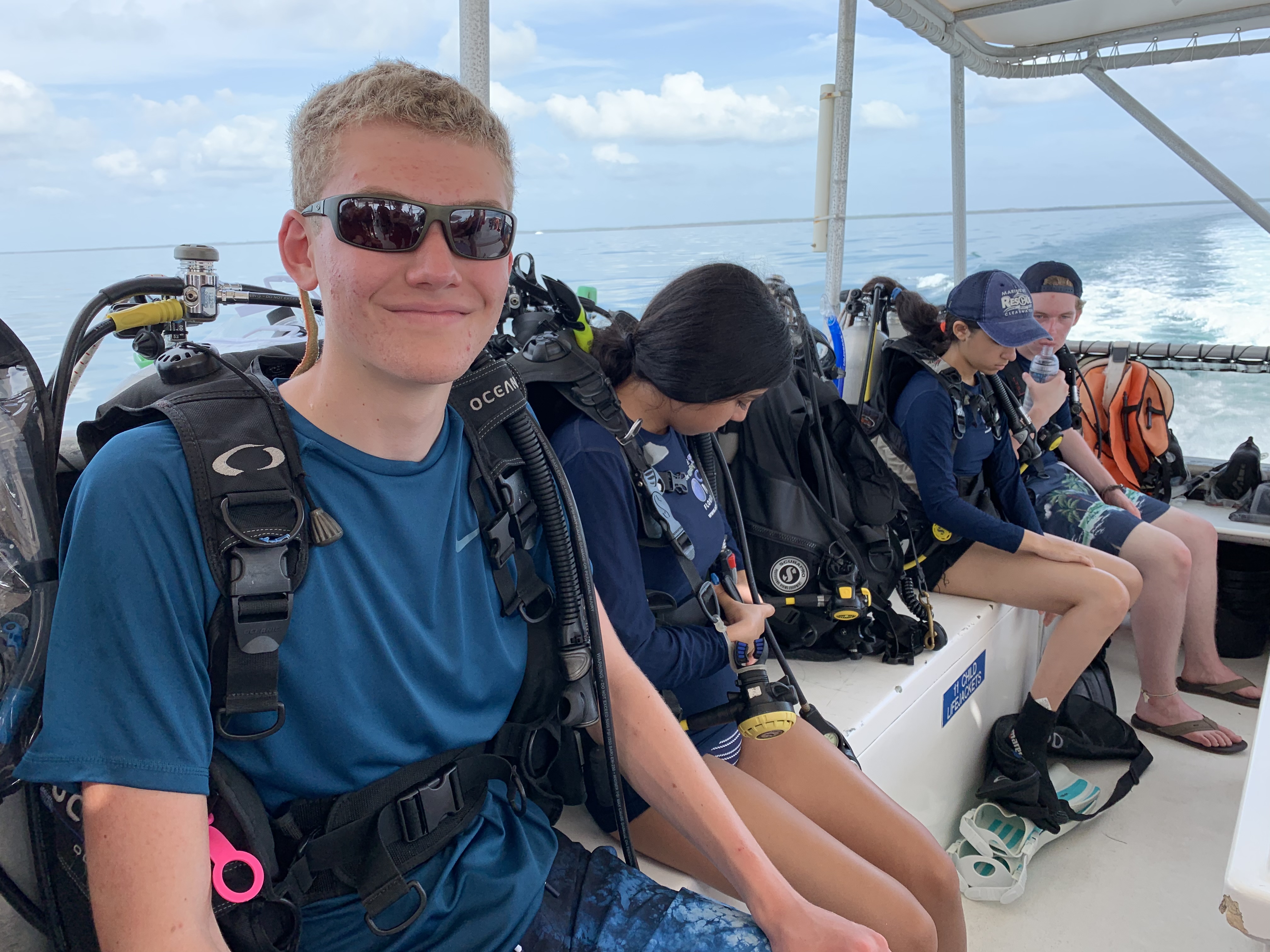
 What have you been up to since attending the Ocean Matters program and what are your plans for the future?
What have you been up to since attending the Ocean Matters program and what are your plans for the future?
After attending Ocean Matters in Florida, I entered my senior year of high school and worked on my classes, a chemical engineering internship, robotics, and Model United Nations club. I stayed involved with conservation by completing a freshwater mussel project on my local James River. This past year I’ve been taking online courses and volunteering to deliver groceries for people in need during COVID. I plan on attending Vanderbilt University next fall.
What did you receive from your involvement in Ocean Matters that will stay with you moving forward?
The experience of meeting people who had dedicated their lives to ocean research and conservation, such as manatee researcher Dr. James Powell and Roxanne Boonstra of the Coral Restoration Foundation, will stick with me forever. I was impressed by their willingness to share their extensive knowledge and commitment to understanding and preserving marine life despite the massive threats against its survival. Whether my career is directly related to ocean conservation, meeting these people has inspired me to keep serving nature and humanity at the forefront of my mind when choosing what to do in the future.
What do you wish everyone knew about the ocean or could experience in the ocean?
I wish everyone could have the experience of diving into a coral reef. When you descend into a reef’s intricate coral structures and multitudes of fish and other species, you gain a visceral sense of the complexity and value of these ecosystems. But you will also see coral bleached, broken, and covered with algae as a result of human activity. I’d hope this experience would help people see the urgent need to come together and figure out how to build a society compatible with ecological reality.
In your opinion, what’s the biggest threat to the world’s oceans, and what is something we could do about it?
The incredible amount of plastic pollution poses a grave threat to the world’s oceans. Plastic blows or washes into the ocean and accumulates in gyres, with the largest, the Great Pacific Garbage Patch, covering an area twice that of Texas. Plastic not only kills large animals through ensnarement or ingestion, but it also threatens the smaller creatures that form the base of the food chain in the form of microplastics clogging their digestive tracks. On the individual level, you can make an effort to recycle and avoid using disposable plastic as much as possible. However, to truly address the scale of the problem people around the world must continue the work of removing disposable plastic from the market, starting with the most superfluous and dangerous forms such as microbeads and plastic bags.
How has your unique perspective helped inform your passion for the ocean?
In high school, I maintained a wide variety of interests alongside conservation, especially in the fields of engineering and international relations. I am constantly soaking up information through books and the internet on topics ranging from physics to politics. While this has made it difficult to commit fully to marine science, it helps me see connections between technology, history, and the ocean environment.
Connor wrote a poem about his experience restoring coral on scuba with Ocean Matters in Florida.